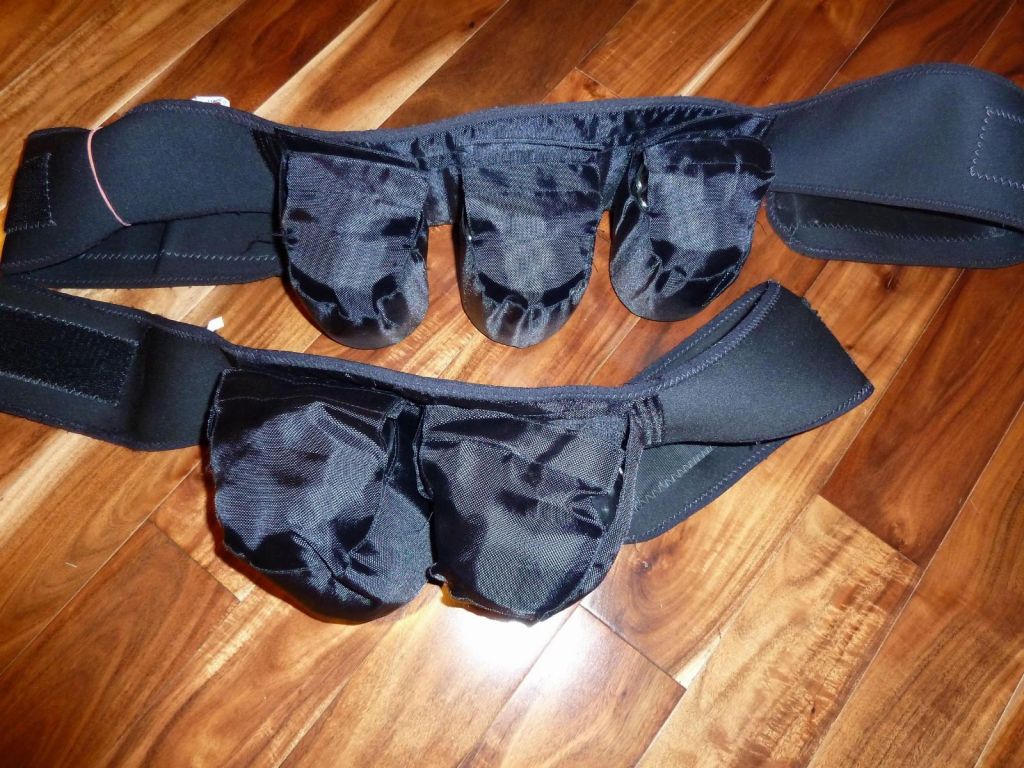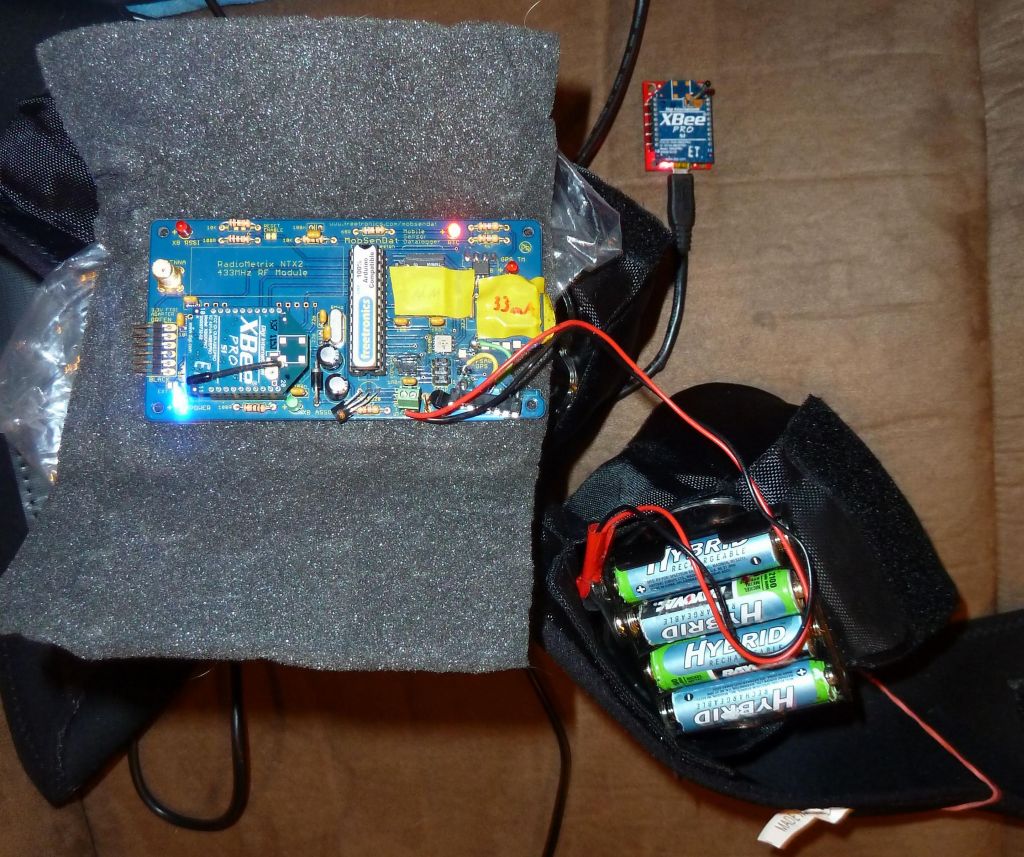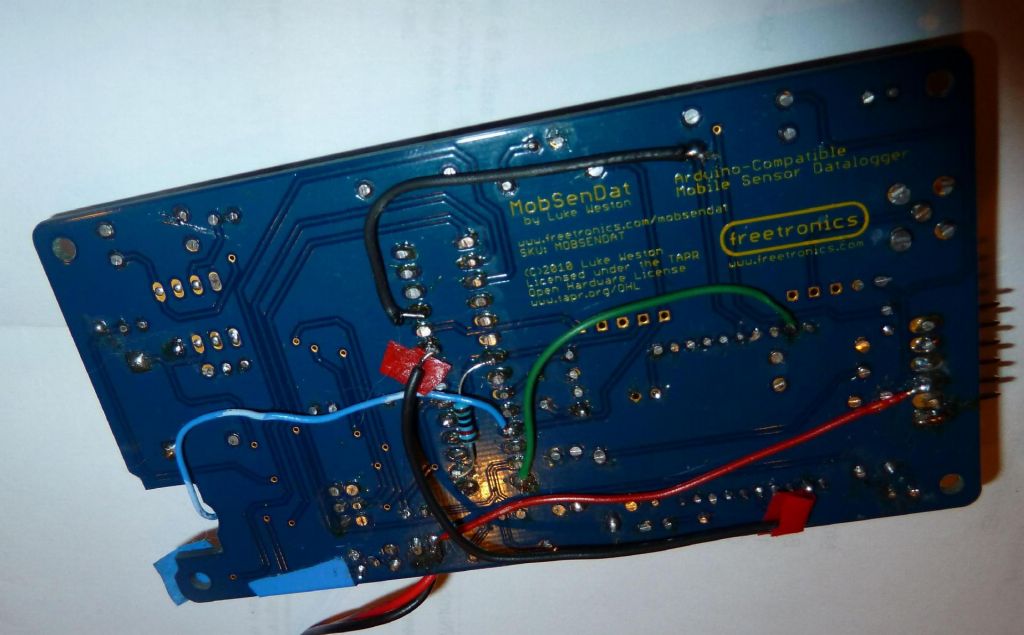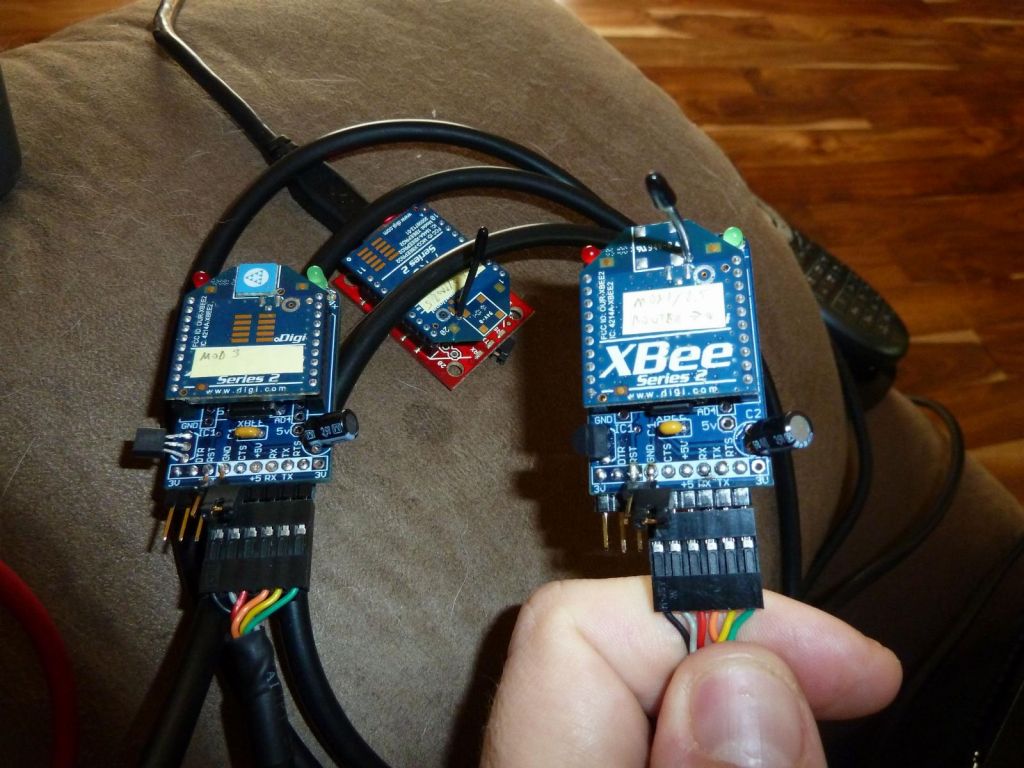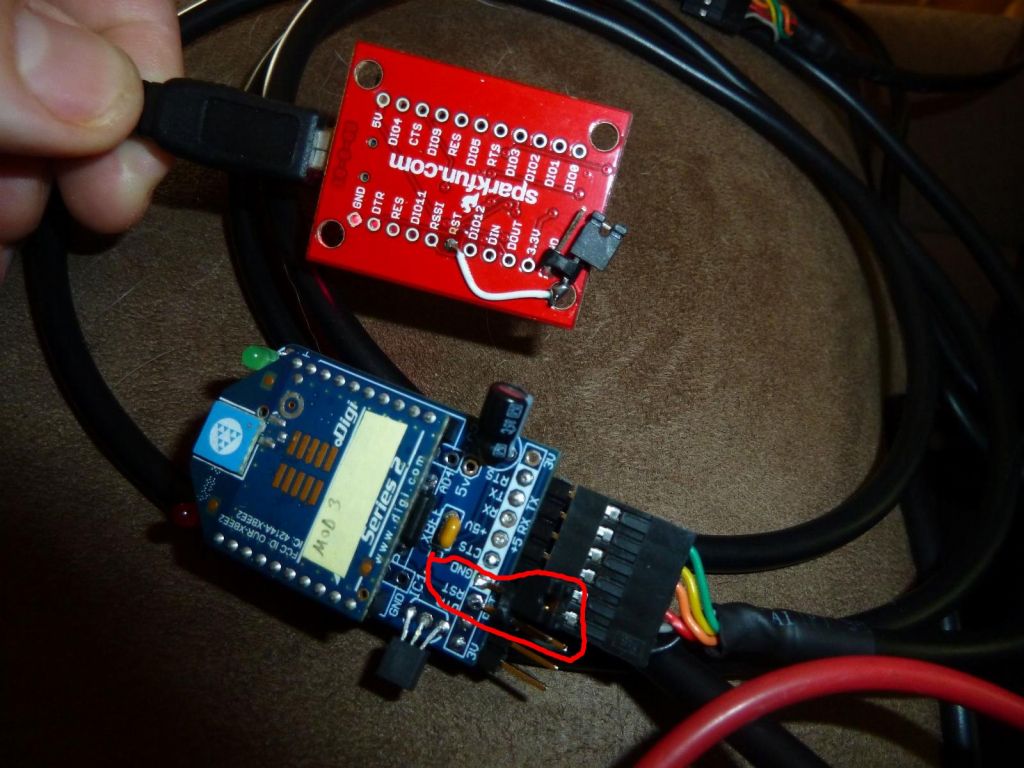Funny thing though is that I am used to falling asleep on my tummy (I don't fall asleep easily on my back), but then I will turn on my back while I'm sleeping, every single night. When I half wake up, I'll go back on my tummy and when I sleep again, go on my back again, making my apnea worse (mind you, sleeping on my tummy is not so good for my neck muscles and spine, but I can deal with that). One would say that I should sleep on my side, but that's an unstable position for me and I don't stay there long.
This is where rematee comes in: I got the Rematee Bumper Belt.
It is a belt with air pouches that you put on your back and that are supposed to stop you from turning on your back at night. I figured I'd give it a shot, but I soon found out that I quite obviously turned on my back anyway and woke up sleeping on the belt, which hurt my back a fair amount and just gave me an even worse night ("obviously" due to back pain and waking up on my back). One is supposed to wear that belt under the armpits, but for me it didn't make a huge difference, except for where the resulting back pain would be.
This was discouraging, but I thought I'd give it another shot and got the next size up from rematee. My size is 36, so the large belt with 3 smaller air pouches was technically a little bit too big for me, but my rationale was that once I have the momentum to turn on my back, a few air pouches in my back aren't going to stop me, and apparently I stay sleeping on them and just get a back acke. It made sense at the time that if the air pillows spilled over to my side a bit, they would be more likely to stop my initial rotatioin to my back.
Long story short, some testing showed that I still turned on my back with the 3 pouch belt. I didn't do detailled testing between the two, but while it seemed to work slightly better, it wasn't good enough.
At that point, I came to wonder if things would work better with wearing both belts. Long story short is that yes, things worked better with both belts.
My suggestion to the designers however, is would for the large belt to have 2 big pouches on the outside to provide maximum leverage against body rotation, and a smaller pouch in the middle to fill the void (the extra large belt does have 3 large air pouches, but that one is just too big for my body).
So the big question, is how do you get quantitative data on this? Well, I just happened to be working on an arduino microcontroller board that had a built in 3 axis accelerometer amongst other things. While it was originally meant for attaching to rockets and location tracking with GPS, I figured I could also use it to simply track my body position at night, so I wrote some code to do that (and log it both to the sdcard on the board as well as send the data wirelessly via Xbee to my computer so that I don't have to pull out the card and read it every day).
You can read this page on Xbee Power Consumption on my Mobsendat Board for details on the board I've been using but basically I get this end result from the board:
"2011/05/24 06:20:04",,X:0.11,Y:-1.00,Z:0.13,V:4.97,left,rssi:0(DC:2),assoc:843(avg:842) "2011/05/24 06:20:09",,X:0.10,Y:-1.00,Z:0.13,V:4.96,left,rssi:0(DC:3),assoc:843(avg:842) "2011/05/24 06:20:14",,X:0.04,Y:-0.54,Z:-0.90,V:4.92,down,rssi:903(DC:0),assoc:843(avg:842) "2011/05/24 06:20:19",,X:-0.05,Y:0.39,Z:-0.93,V:4.96,down,rssi:903(DC:0),assoc:841(avg:842)
The important part is the "left" which changed to "down" (Y axis went from -1g to less than .5, and Z went from 0 to -0.9g). I then have a script that parses the output and gives a summary for each night which I then enter in my detailled spreadsheet.
gandalfthegrey [mc]$ ./scan_file night63_twobelts_home_sun.csv up, down, left, right, unkwn, pos changes, hours sleep 11.4%, 52.6%, 26.9%, 09.0%, 00.0%, 19 pos chg, 7.7 H sleep
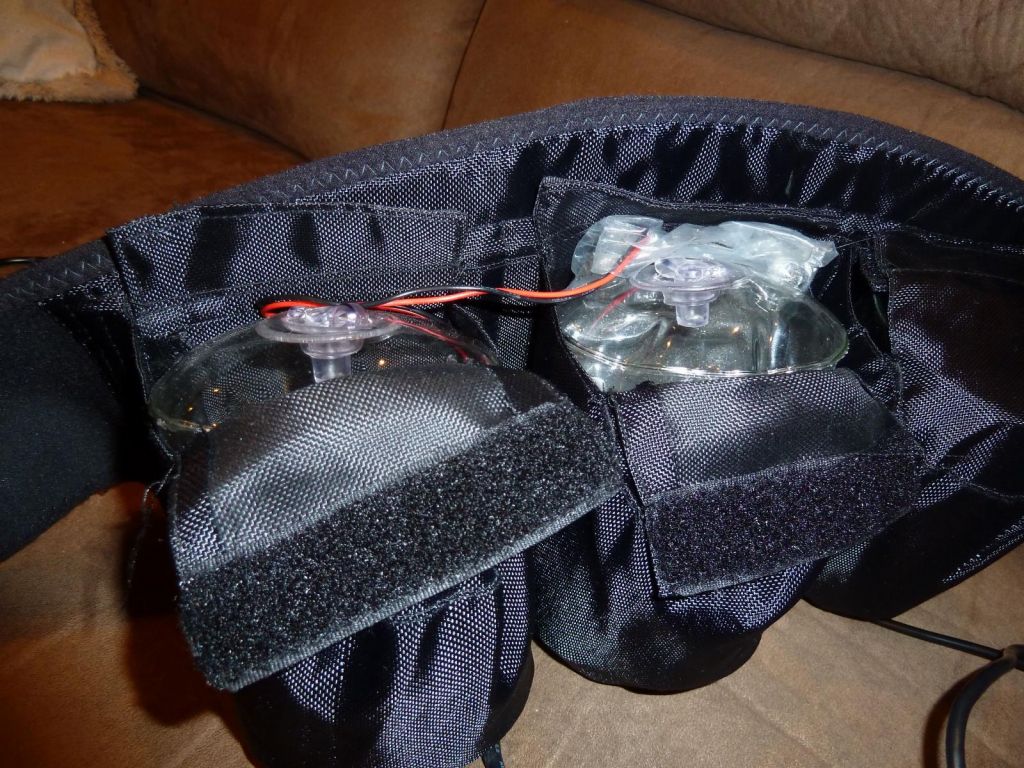
the microcontroller and battery pack fit nicely inside
And the results are that I slept an average of 26% of my night on my back without belts, 13% with one belt, and down to 7% with both belts. On one side, this is encouraging, although on the other side, it's a bit eery that I still manage to sleep 7% of my night on my back, either by rotating the belts just enough, or by plain sleeping on them. You'll however see if you check the detailled spreadsheet that with the belts on, I have many nights when I didn't sleep on my back at all, and that the average gets messed up by a few nights when I slept more than 20% of the night on my back. It is possible that the optiona shoulder straps will help fix that.
So how much better is my sleep? That one I don't have quantitative numbers for since I haven't been able to get an SPO2 sensor that I can interface with yet, or easily measure my breathing patterns vs my body position (I did use nose canulas in other take at home sleep tests and I tended to rip them out by sleeping on my face anyway).
While I don't have exact data, my sleep did feel better with the belts, I also know that my apnea is worse when I'm on my back, so it's fair to say that belts help. How much exactly? Not sure yet, I'll get more data on that later hopefully. I also have to note that my data isn't perfect because at the same time I had to wear a heavy dental piece at night that kept my teeth from moving back to their old place (this is related to my post MMA surgery dental works). I was able to stop using that bulky mouthpiece at day 51, and my sleep improved noticeably at that time.
So while the data is not perfect since I at least changed the mouth piece part during the samples, here's my summary spreadsheet, and the detailled spreadsheet.
Interesting bit I got from the data are: I tend to flip-flop about the same amount regardless of whether I have the belts on, and outside of the amount of time on my back, the belts didn't change other sleep parameters I was measuring:
|
